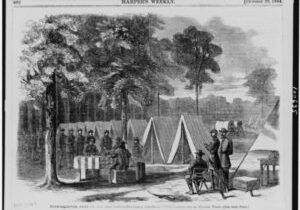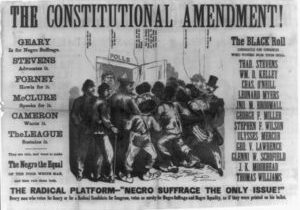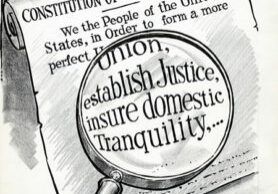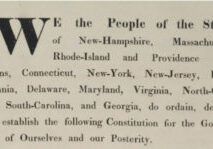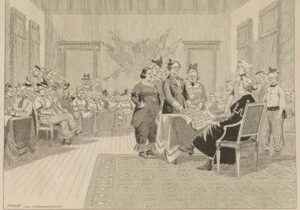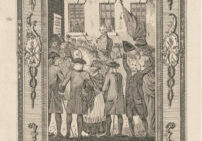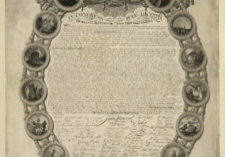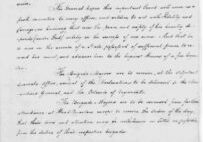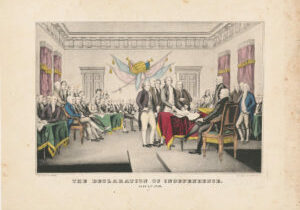Lesson Plans
Absentee Voting & Voting by Mail
Students study historical primary sources to gain context and perspective regarding absentee voting, including voting by mail, throughout U.S. history. After, students can investigate election voting laws and issues related to absentee voting and voting by mail to help them craft an editorial in support of or against these practices.
The Constitutional Amendment
Students analyze a primary source, focusing on author purpose and audience, to deepen their understanding of enfranchisement and the debate leading up to the passage of the 14th amendment to the U.S. Constitution. After, students investigate the National Popular Vote Interstate Compact and use what they've learned to create a poster that supports or opposes the compact.
Preamble to the Constitution Image Sequencing
Students develop their civics vocabulary and deepen their understanding of the preamble to the U.S. Constitution with this primary source image sequencing activity. After, students work together to create a class preamble that describes the purpose and function of their classroom community.
Introduction to the Constitution
In preparation to learn about the rights and responsibilities detailed in the U.S. Constitution and the purpose for its structure of government, students develop their ability to compare and contrast documents and make their own historical interpretations as they complete a close reading of the Preamble. After, students put the Preamble into their own words.
Signing the Declaration of Their Independence
Students compare and contrast a famous print celebrating the Declaration of Independence with a political cartoon about woman suffrage, then complete a close read of the Declaration's introduction or preamble. After, students create a product of their choosing that provides a commentary on the meaning of that text in the context of today.
Making a Declaration – Beginning
Students investigate the Declaration of Independence as a founding document of the United States, then consider the historical and contemporary relevance of its most famous phrase and how it relates to a personal vision of the American dream.
Making a Declaration – Intermediate
Students investigate the importance of the Declaration of Independence as a founding document of the United States, then consider the historical and contemporary relevance of its most famous phrase and how it relates to a personal vision of the American dream.
Making a Declaration – Advanced
Students investigate the historical impact of the Declaration of Independence, then consider the significance of the Declaration of Independence to the United States today and the contemporary relevance of its most famous phrase to the country, to the community, and to self.
The Declaration of Independence: Created Equal?
Through discussion and primary source analysis, students investigate Thomas Jefferson's efforts to deal with the complex issues of equality and slavery in the Declaration of Independence. After, students rewrite the Declaration of Independence (or portions of it) to fit a contemporary society and may also stage a mock trial with the students playing the roles of Jefferson and others and Library of Congress primary sources serving as evidence.
Technology & Presidential Nominating Conventions
Students analyze primary sources and other resources from 1928, 1960, and 2020 to investigate and consider the impact changes in technology had on presidential nominating conventions. After, students envision future technologies and how they might be used to impact future presidential elections.
